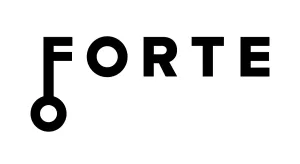The platform sent a message to the exploiter attempting to negotiate a return of some of the funds.
CoinPoker exploited for $2 million
MetaWin casino hacked for $4 million
- "Online Casino MetaWin hacked for $4 million — ZackXBT", CoinTelegraph
Supply chain attack stemming from JavaScript animation library results in losses for users of 1inch and other platforms
Other crypto platforms affected included TEN Finance and Movement. Because the animations library is widely used, other non-crypto-related websites also showed the prompt.
M2 cryptocurrency exchange hacked for $13.7 million
Shortly after the theft, M2 acknowledged the hack and announced that "the situation has been fully resolved". This apparently involved M2 restoring customer funds from their own assets, rather than recovering the stolen assets.
Sunray Finance hacked for $2.7 million
In the process of selling off tokens, an arbitrage bot was able to take advantage of the price difference by selling the rapidly crashing SUN token into a second liquidity pool that apparently went unnoticed by the hacker, and the bot operator also profited around $560,000.
$20 million moved from US government wallet in possible theft
The government has not made any statements regarding the movement of assets.
The following day, $19.3 million in tokens were returned to the original wallet.
Sharpei memecoin rug pulls for $3.4 million
As the token price stuttered along with these revelations, insiders apparently decided to quit while they were ahead, and cashed out in a quick and coordinated sale.
Blockchain company Forte acquires games studios, demands secrecy, shuts them down
Both studios had several games in progress, and two of Phoenix Labs' games were explicitly designed for younger players. Developers reportedly voiced discomfort with incorporating blockchains into the games, selling digital items to children.
Later, Forte pulled the plug on several in-development games at both studios. Then, Forte shut down Rumble in 2024, laying off all employees. Forte also laid off over 100 people from Phoenix Labs that year.
Tapioca DAO exploited for most of its assets — over $4 million
Various security researchers have observed that the attack appears to be linked to a slew of social engineering attacks perpetrated by cybercriminals out of North Korea.
Radiant Capital exploited again, this time for at least $50 million
This is the second Radiant Capital exploit this year, after a $4.5 million theft in January that was enabled by an unaddressed vulnerability in the underlying Compound Finance code.
The US and South Korean governments later attributed this attack on Radiant to North Korean state-sponsored attackers.








